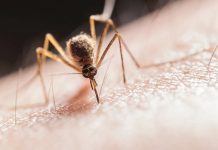A heart attack is a medical emergency that occurs when blood clots block the supply of blood to the heart. It can be the leading cause of death. Without the blood flow tissue loses oxygen and dies. Women are more likely to experience the symptoms of heart attack compared to men. Heart attack treatments include lifestyle changes, cardiac rehabilitation to medication, stents, and bypass surgery. In this blog, we have covered important heart attack prevention methods and tips on how you can lead a healthy life. There are many ways to lower the risk of a heart attack.
Heart disease is one of the leading causes of death in the U.S., and it can also contribute to disability. Many risk factors contribute to developing heart disease. Learning heart disease treatment may keep the heart attacks at bay.
Symptoms of a Heart Attack
Heart attacks symptoms include:
- Tightness, squeezing or pain in the chest, back, arms, or neck
- Experiencing weariness, lightheadedness, abnormal heartbeat, and anxiety
- Dizzy feeling
- Sweating
- Shortness of breath
- Feeling of nausea or vomiting
Causes of a Heart Attack
Coronary heart disease (CHD) leads to heart attacks. CHD is a type of heart disease developed when the arteries in the heart are unable to provide ample oxygen-rich blood to the heart. The buildup of plaque causes the disease. Before one gets a heart attack, the plaque bursts, causing a blood clot to form at the site of the rupture. The blood clot will trigger a heart attack by blocking the blood to the heart.
Tips for Heart Attack Prevention
Did you know 80% of premature heart attacks and strokes can be prevented? Here are the important steps to reduce the risk of having a heart attack or experiencing another heart attack
- Quit smoking and use of tobacco
- You should involve at least 30 to 60 minutes of activity daily to lower the risk of heart disease. Exercising helps reduce the weight and chances of developing other conditions—high blood pressure, high cholesterol, and type 2 diabetes.
- People with weight issues or obesity should try to lose weight
- Reduce your alcohol consumption
- Manage stress
Best Heart Attack Prevention Foods
- You should include heart-healthy foods that help maintain your heart health and reduce the risk of heart disease.
- Consume a low fat, high-fiber diet—include whole grains and at least 5 portions of fruit and vegetables a day
- Include vegetables and fruits
- Add beans or other legumes
- Include lean meats and fish
- Use low-fat or fat-free dairy foods
- Whole grains
- Add healthy fats-olive oil
- Berries
- Avocados
- Fatty fish oil
- Dark chocolate
















